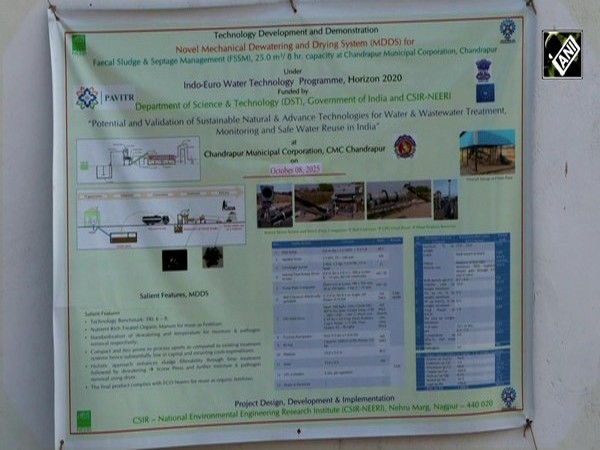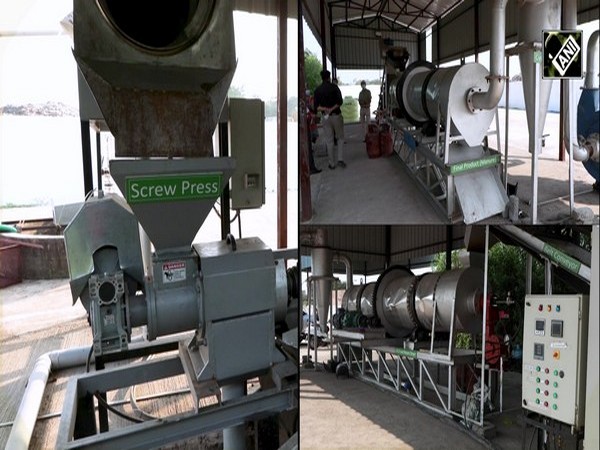COVID-19: China's over 35-year-olds staring at uncertain job prospects
Feb 09, 2021

Hong Kong, February 9 : Amid coronavirus pandemic, Chinese jobseekers above the age of 35 years are feeling increasingly insecure about their future with uncertain job prospects, reported South China Morning Post (SCMP).
The cut-throat competition for jobs amid the impact of the pandemic has caused employment ads to impose an age limit of 35 - leaving many Chinese nearing middle age in a quagmire.
Sidney Leng and He Huifeng, writing for SCMP said that many firms are seen as favouring young and energetic graduates in China, where age discrimination is not illegal.
Complaints about age discrimination in the job market - including for positions in the civil service - have flooded Chinese social platforms, and state media even have a name for the trend: the "age 35 phenomenon", reported SCMP.
"I'm almost 50. Am I going to look for jobs? No. There's nothing for me out there. Finding jobs is too difficult," said Huang, who is in his forties, is one of the scores of Chinese workers above 35 feelings increasingly vulnerable.
Due to pandemic, his clothing factory in the southern province of Guangdong was closed, forcing him to seek a job in wet markets and roadside stalls trying to sell his remaining inventory of about 10,000 garments.
"Just look at how bad business is in those clothing retail shops in Guangzhou, you will get an idea of how bad wholesaling and manufacturing garments is at the moment," he lamented.
Moreover, China's version of the American question and answer website Quora, Zhihu has clocked up more than 27 million views since 2019 on the discussion thread of, "How does a 40-year-old unemployed individual live on?"
The frustration of such middle-aged job seekers only appears to have deteriorated with the pandemic.
Nearly two-thirds of people aged 35 and above who were laid off in March last year were still looking for jobs in September, according to a report released last month by the Development Research Centre of the State Council, which was based on data and a survey from Chinese job portal Zhaopin.
From February to September, the number of people above 35 who submitted their resumes on Zhaopin increased by 15 per cent from a year earlier, more than double those under 35.
Resume submissions were particularly strong in industries that have been heavily affected by the pandemic, like retail and wholesale.
As a consequence, nearly half of the job applicants above 35 fell from middle or high-income groups to low income because their earnings had dropped, according to the study.
More than 70 per cent said they face pressure meeting mortgage payments and other costs, such as children's education and medical bills. The study also estimated a third of them could only survive at current spending levels for 3 months.
Age discrimination is illegal in many countries, but not in China, which is facing a rapidly ageing population and shrinking workforce after more than three decades of the one-child policy.
Beijing has not yet announced its birth rate for 2020 or updated population figures after a nationwide census at the end of last year, but its birth rate is expected to have fallen again.
Despite this, many companies are seen as favouring young and energetic graduates over middle-aged workers because they can pay lower salaries for similar work, reported SCMP.
The trend is most evident in China's thriving tech sector, where a number of internet firms operate a sweatshop working culture known as "996" - 9 am to 9 pm, six days per week. Most developers over 35 are considered too old to handle the workload, wrote Sidney and He.
The Zhaopin study found even though there are more job opportunities in low-tier cities than first-tier cities, many middle-aged job seekers are hesitant to move their families out of China's most developed and affluent regions, such as Guangzhou.
A graduate school degree and work experience for some of the nation's biggest tech companies does not necessarily give you an edge either, said 38-year-old Jim Yang, whose position as a former salesman at telecoms giant Huawei was ended by the firm three years ago.
No longer is it difficult for big companies to replace experienced workers because often their knowledge has been captured in reports that can be picked up by fresh graduates, said Yang.
It took Yang three months to find a new job at a small robot manufacturer, where he had to take a lower salary. Some of his old colleagues, meanwhile, have gone back to Huawei as contractors on lower incomes and social benefits after struggling to find a job elsewhere, reported SCMP.




















